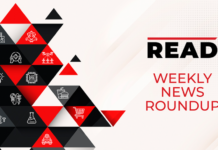Red Hat, Inc., the world’s leading provider of open source solutions, and Deloitte, a provider of industry-leading audit, consulting, tax and advisory services, announced an expanded collaboration to help manage the complexity of multi-vendor software ecosystems across industries, including a comprehensive solution to support the development, systems engineering, testing and operations of software-defined vehicle (SDV) product lines. With this collaboration, Deloitte and Red Hat will help organizations accelerate the transition from traditional hardware development methodologies to software-defined development cycles.
Empowering the automotive industry with greater choice and flexibility
The growth of SDVs means that today, each vehicle is its own edge datacenter benefitting from new capabilities for vehicle functionality and connectivity. Automakers are currently having to manage the onset of both software-as-a-service models and traditional operating models, potentially increasing quality issues. To help combat these issues, Red Hat and Deloitte have designed a pre-integrated, multi-vendor solution for SDVs based on Red Hat In-Vehicle Operating System, which will help the auto industry move towards more scalable software designs. Beyond Red Hat In-Vehicle Operating System, the pre-integrated solution also encompasses:
- Red Hat OpenShift, serving as the application platform offering a DevOps environment with a stronger security posture. In this vehicle off-board environment, applications can be developed and deployed as containers via over-the-air (OTA) updates to the car. This enables software teams to track, manage and resolve problems in real-time, while also improving code quality.
- Red Hat Ansible Automation Platform and Red Hat Quay for greater mission-critical automation and container image security capabilities in SDV development workflows, enhancing and modernizing CI/CD pipelines for greater efficiency. Ansible Automation Platform delivers consistency and agility by minimizing manual processes and accelerating the overall development and deployment cycles while reducing error.
Also Read: Keyloop completes the acquisition of Automotive Transformation Group (ATG)
Deloitte’s portfolio of SDV capabilities helps organizations accelerate the transition from traditional hardware development methodologies to software-defined development cycles. The portfolio includes services and capabilities for:
- Systems engineering, DevSecOps, validation and verification, virtualization and modern engineering. Deloitte’s capabilities are supported by generative AI (GenAI) for product owners, quality assurance and development teams, including use cases for spec-to-code generation, test case coverage and intelligent vehicle diagnostics.
- Strategic, tactical and operational services to support automakers and automotive suppliers in creating high-quality automotive software-defined products by adhering to regulatory standards and innovating on use cases such as unified issue management, version and variant traceability, intelligent vehicle debugging and line of code impact analysis.
- Automakers and automotive suppliers to scale software delivery across parameters with processes and OTA platform models that promote continuous improvement of vehicle features and function management after the start of production, while also ensuring proactive quality assurance.
Red Hat’s open source technologies and platform expertise, combined with Deloitte’s deep industry experience and technology and engineering capabilities, will help customers and partners gain more dedicated support and closer alignment to better power the next wave of automotive innovation. The Red Hat and Deloitte solution can bring several potential benefits to automotive manufacturers, including:
- A streamlined, software-defined vehicle lifecycle, enhancing defect management, bug fixes and updates.
- A pre-integrated, multi-vendor solution that manages software complexity and quality risks for automakers and suppliers.
- The possibility of additional time and money – not only for automakers but also for the end user as they’re able to better avoid unnecessary trips to the dealer for software updates.
- Faster time-to-market with scalability and a future-ready infrastructure.
- Improved risk management and regulatory compliance as the automotive industry moves towards a software-centric approach.
- Accelerated development cycles that compress test phases and intensify the pressure for reliable integration.
SOURCE: Businesswire




